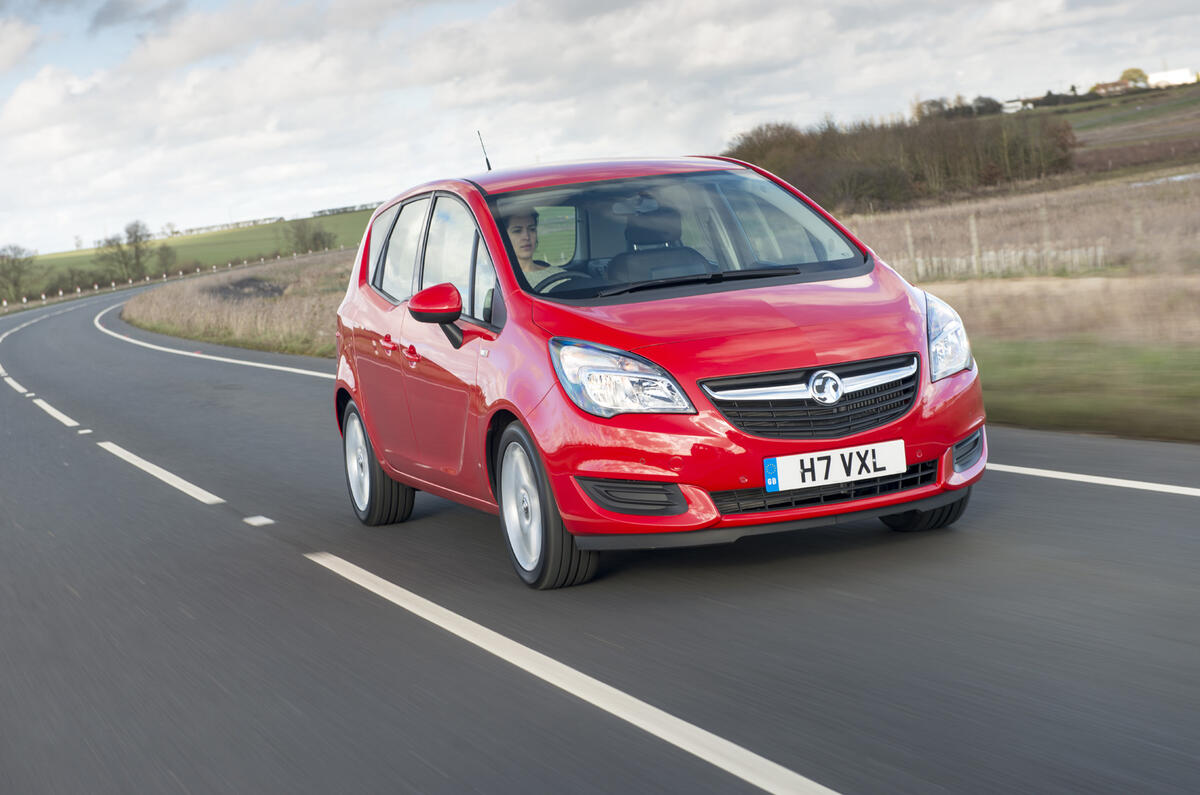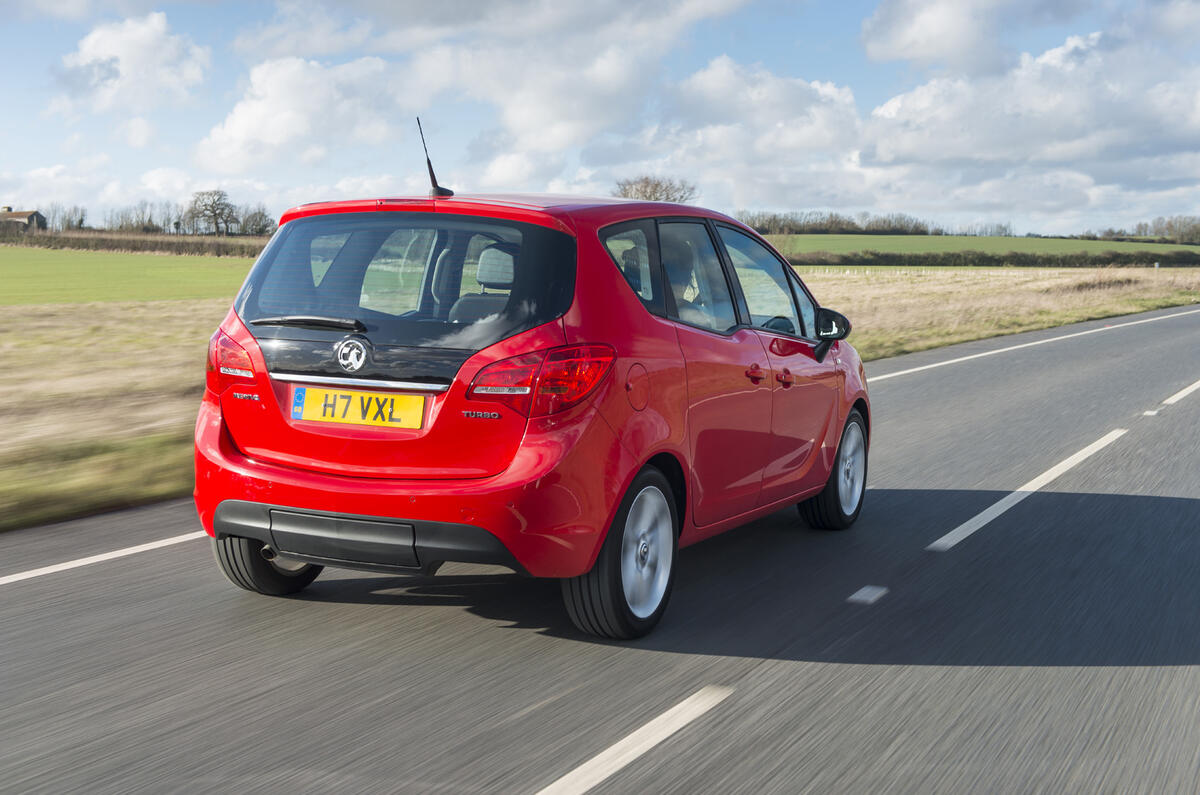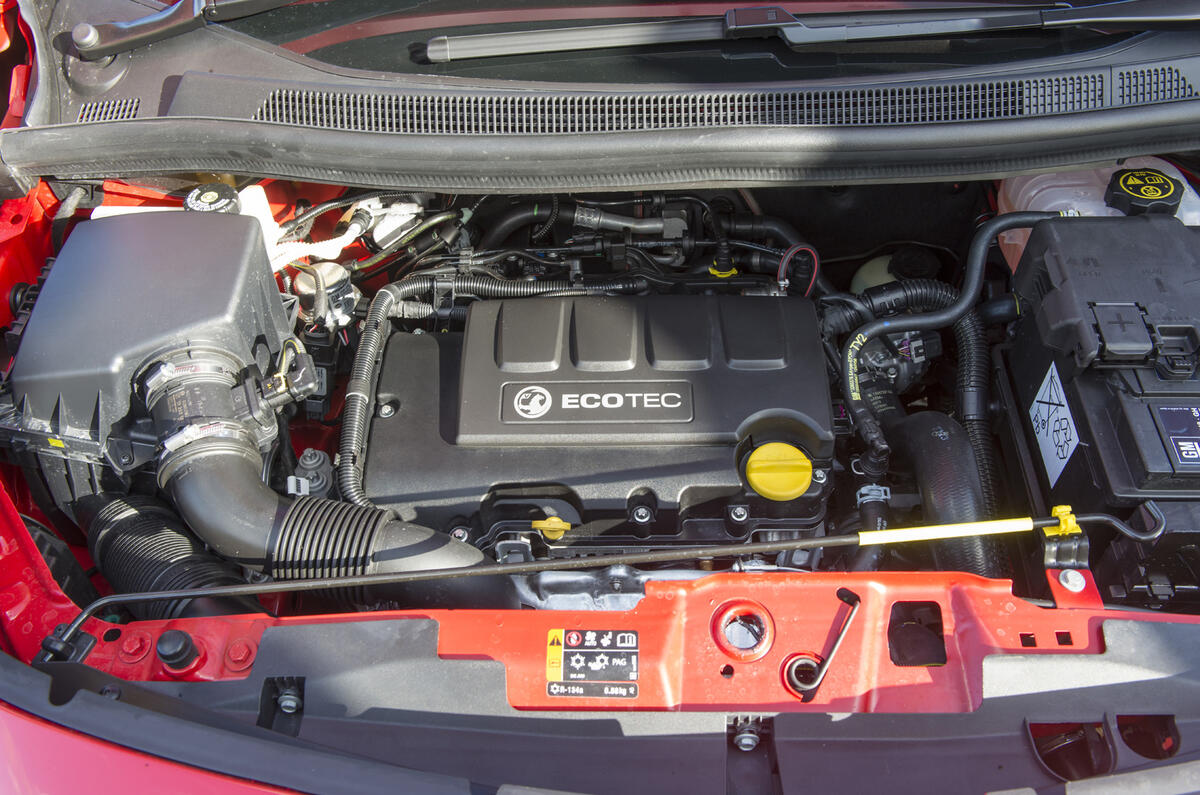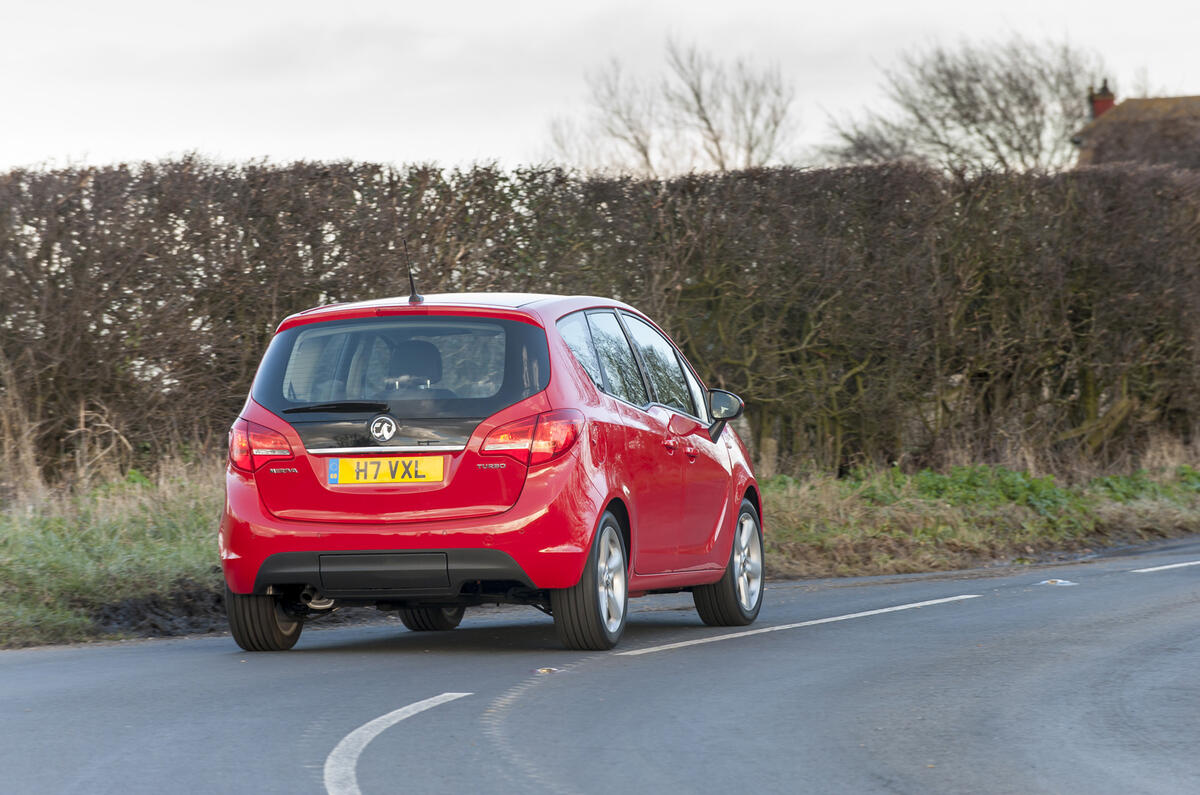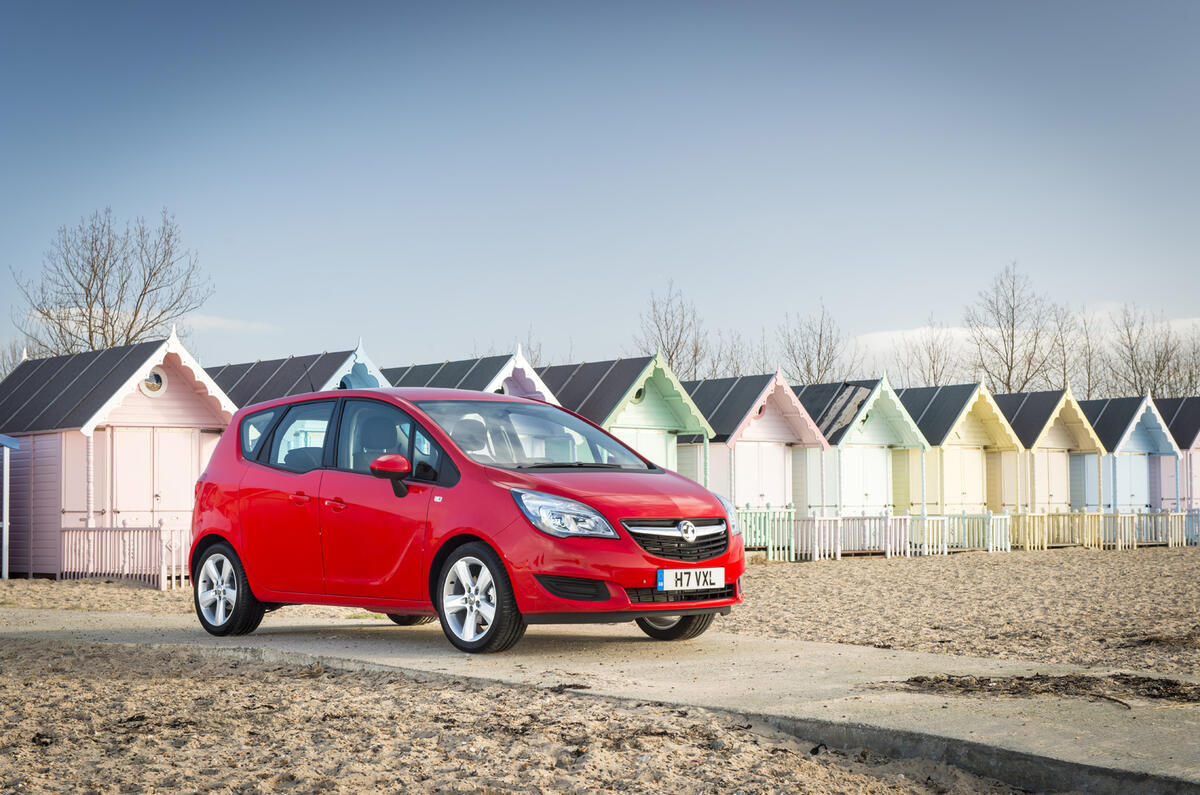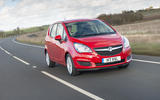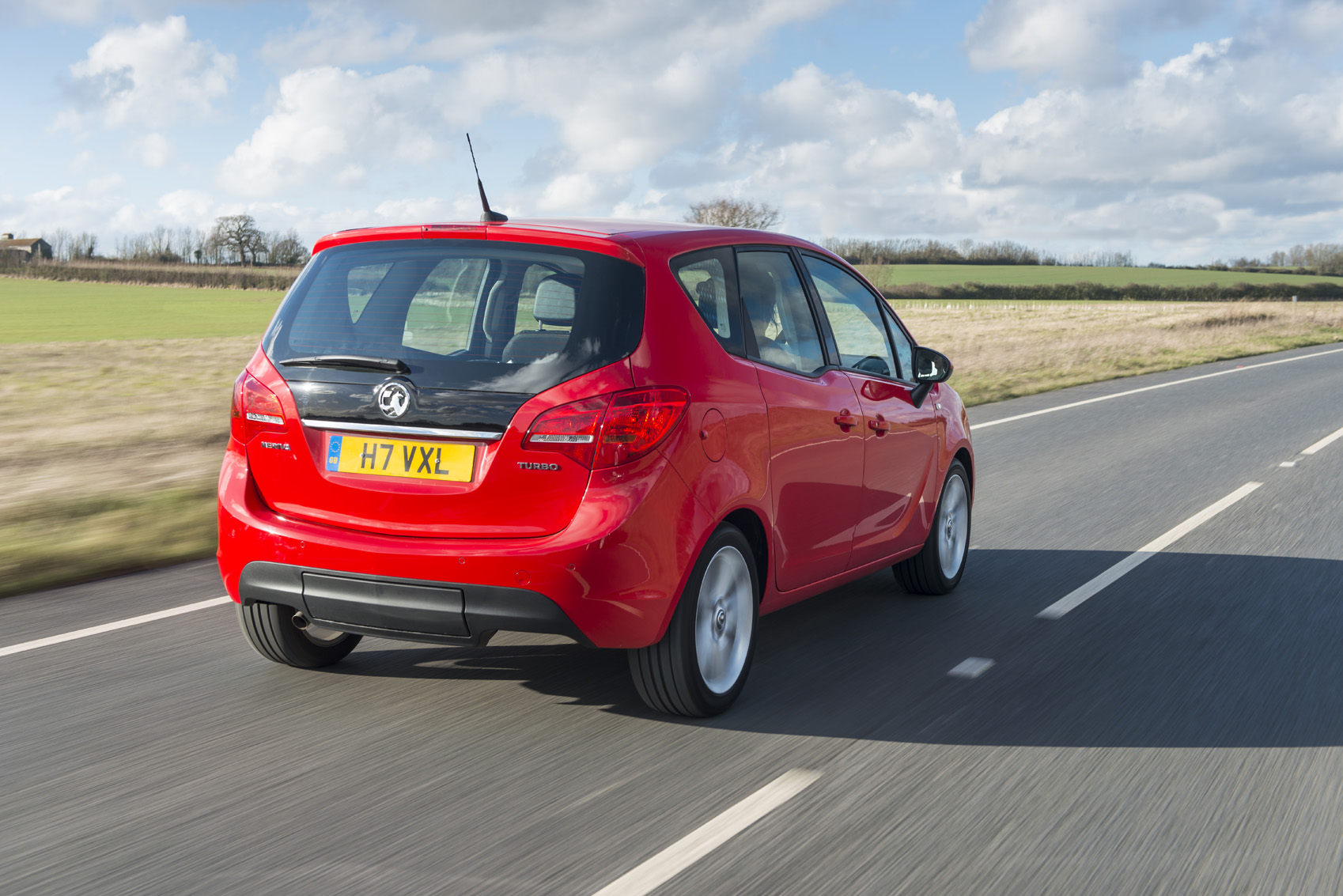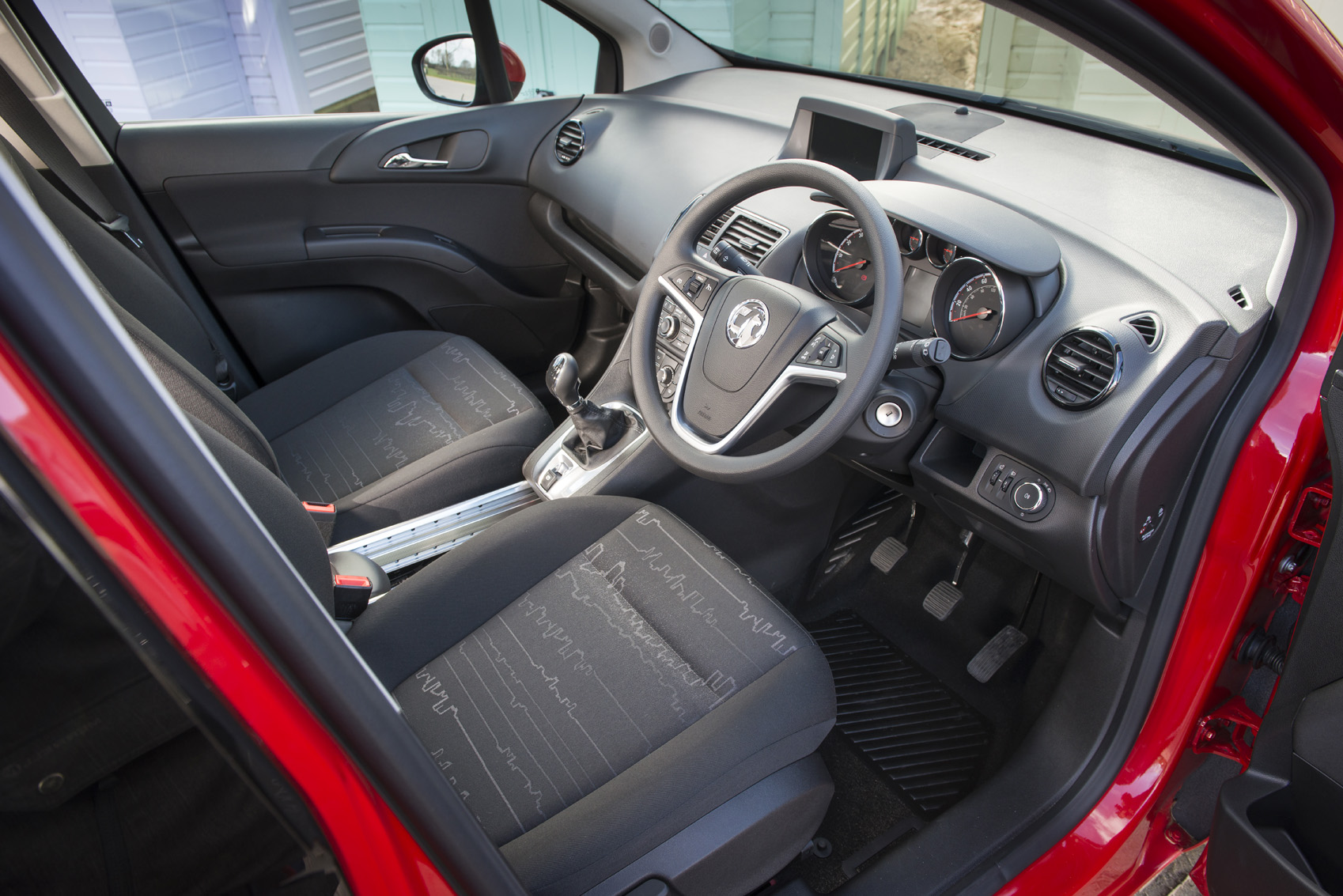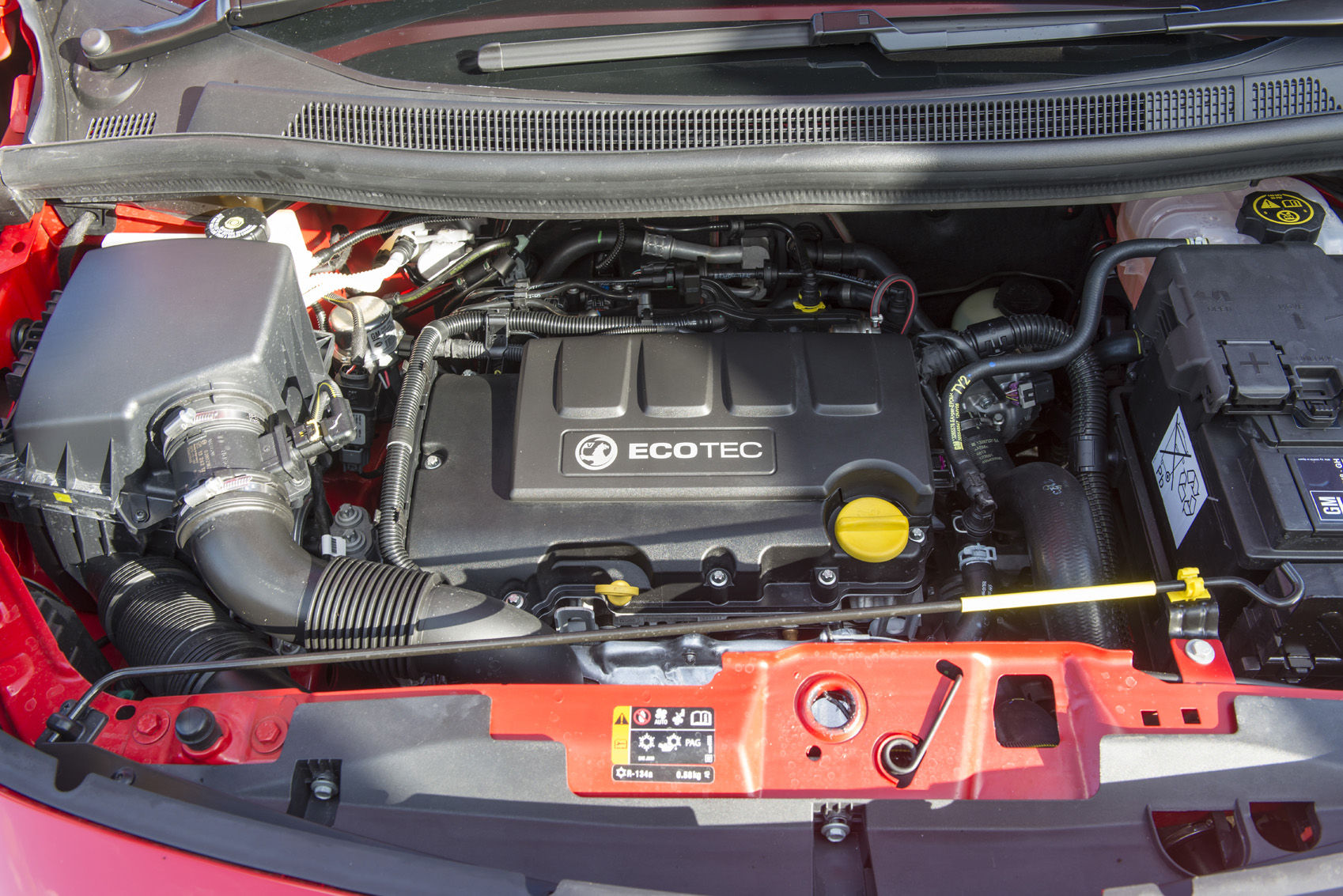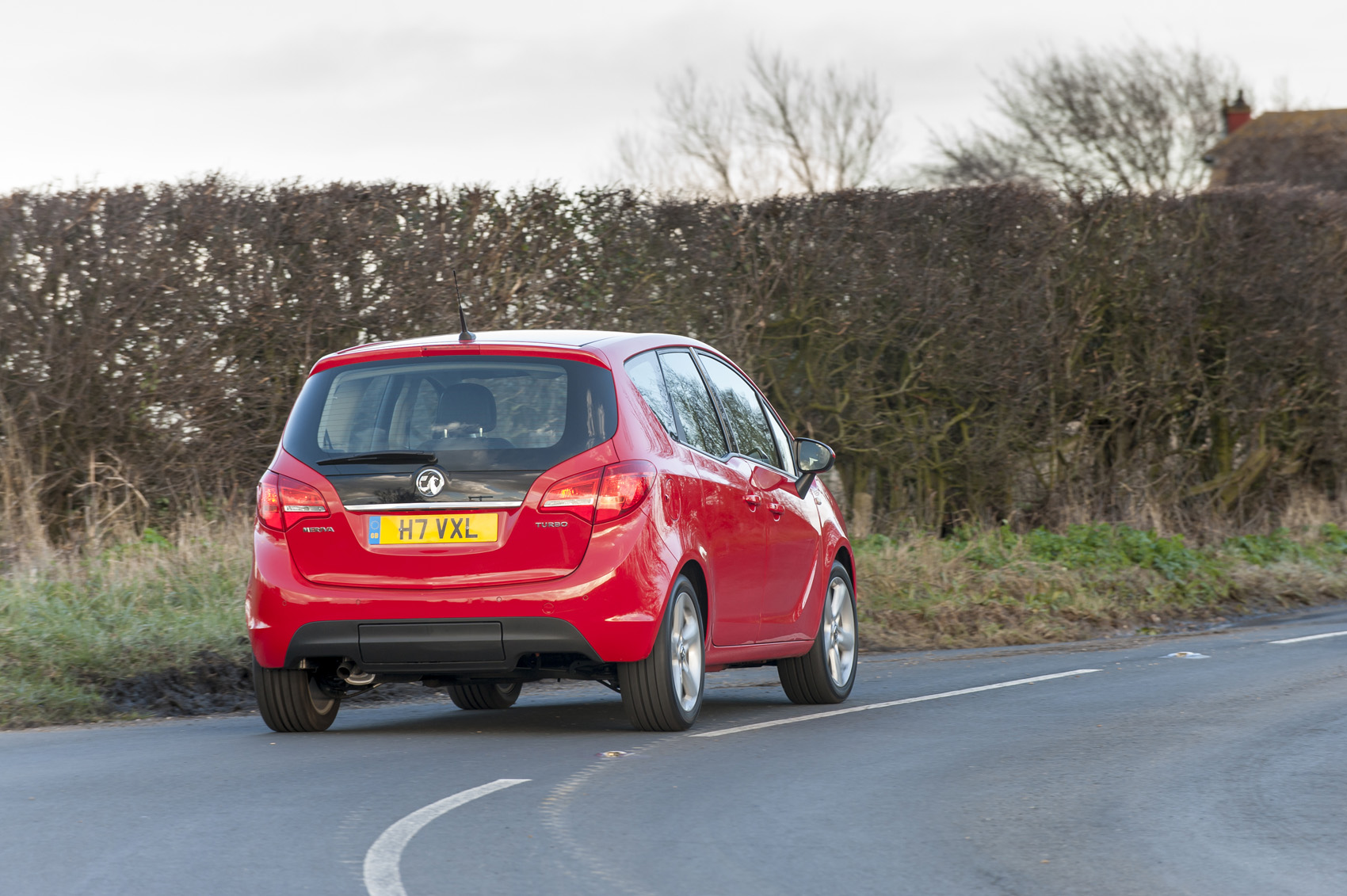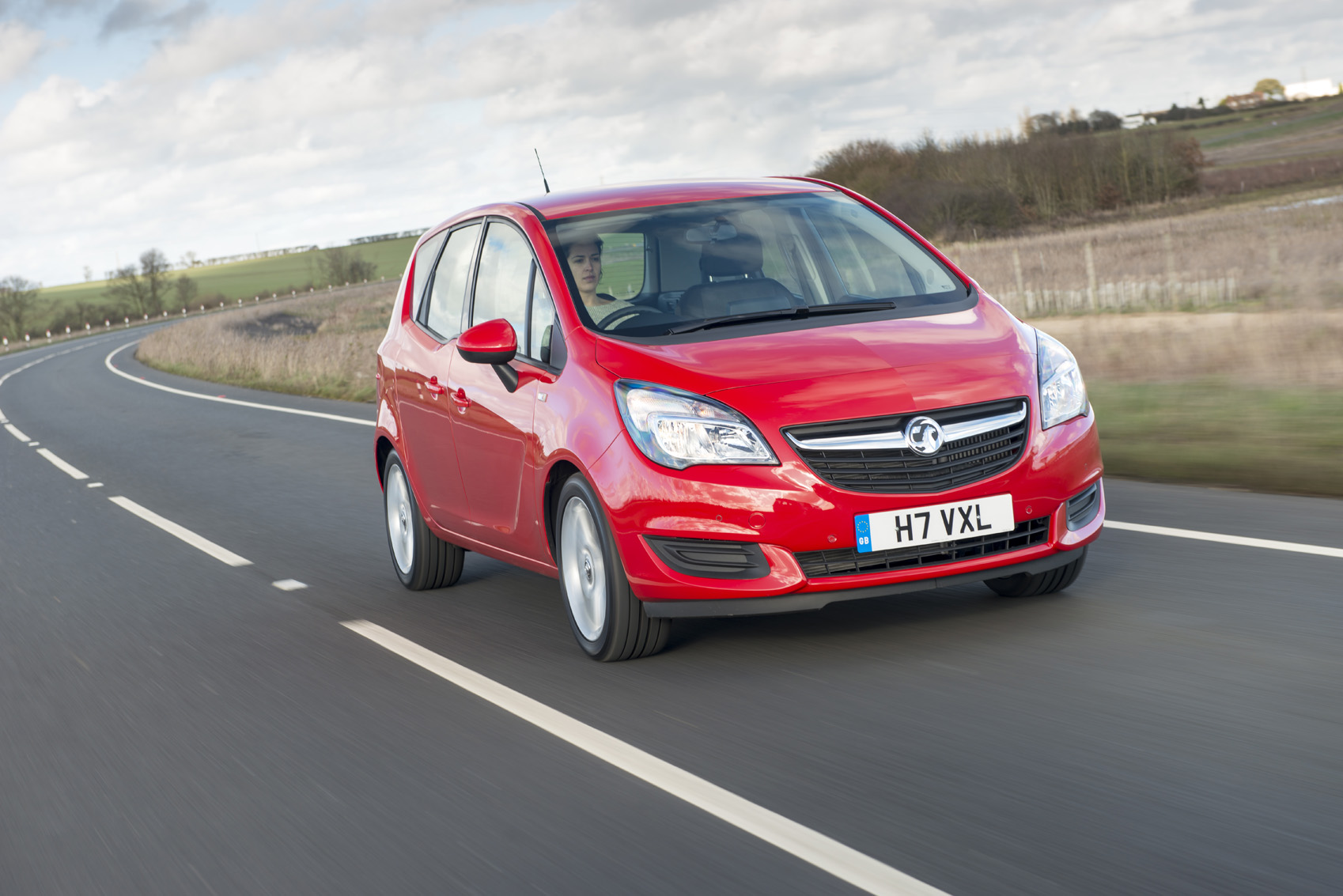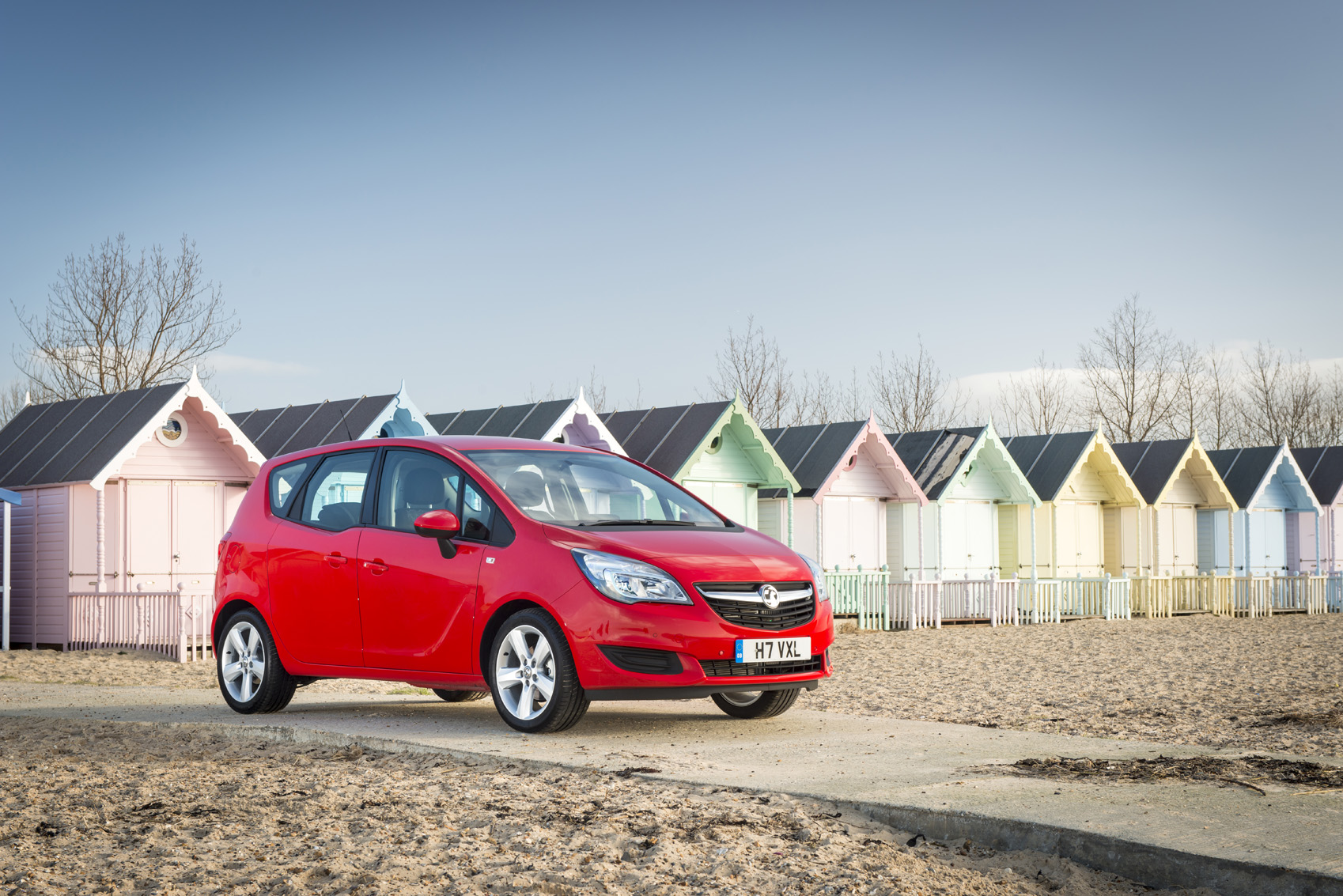This is where the Vauxhall Meriva will stand or fall and where its forerunner succeeded so strongly, offering remarkable space and comfort in such a small length. The new one offers more of the same, but with extra overall cabin volume courtesy of its increased length and wheelbase. And, of course, those novel rear doors.
Are they a success? A qualified one, yes. When it’s possible to open the doors wide, they undoubtedly offer easier access to the rear seats. They allow better access for installing child seats, because if you’re leaning in through the door, you’re naturally facing towards the seat.
In tighter spaces, however, that’s no advantage; a conventional door aligns your back with the seat you’re sliding into. And what if a driver and rear passenger want to exit on the same side in a tight space? They can’t at the same time, because they end up trapped between the doors, without sufficient space to close either.
In the cabin, there’s a semi-raised, comfortable driving position that’s higher than a conventional hatch’s but well short of being van-like. Spread before the driver is a dashboard which carries forward themes from the Insignia and Vauxhall Astra.
Some of the detail switchgear is the same, in fact, although here it’s better in feel than in early Insignias, as Vauxhall seems to have mastered constructing the buttons with good tolerances and a classy feel. Certainly, the interior ambience is much more mature than before and soft-feel plastics are used widely, going some way to justifying the near-£21,000 price of our SE test car.
The highlights, though, are the rear seats, which can seat three on a bench but work far better as separate chairs for two. The centre part of the rear bench folds and falls slightly, allowing the outer two chairs to be moved backwards and, simultaneously on a rail, inwards to give rear passengers more leg and elbow room.
Some of the storage options are also impressive. For instance, there’s a centre console cubby that can be slid back and forth on a central pair of rails, which, combined with an electronic parking brake and high, forward-mounted gearlever, gives the front cabin an airy feel (although we’d still prefer a conventional handbrake).
With the rear seats in place (and in their forward position), boot space is a respectable 400 litres, and it rises to 1500 litres with the seats completely folded. As with the Corsa, a novel but expensive bumper-mounted bicycle carrier can be specified.
As for standard equipment, there are four to choose from - Life, Club, Tech Line and SE. Entry-level models gets the unique flex door, boot space and rear seat set-up, air conditioning, cruise control, USB connectivity, Bluetooth, 16in alloy wheels and front foglights as standard, while upgrading to Club adds curtain airbags, a chrome exhaust tip and a sliding front cupholders.
The mid-range Tech Line trim adorns the Meriva with 17in alloy wheels, electric windows, heated front seats and steering wheel, parking sensors and folding rear picnic tables, while the range-topping SE models get a panoramic sunroof, Vauxhall's OnStar system, and underseat storage for the front seats.


